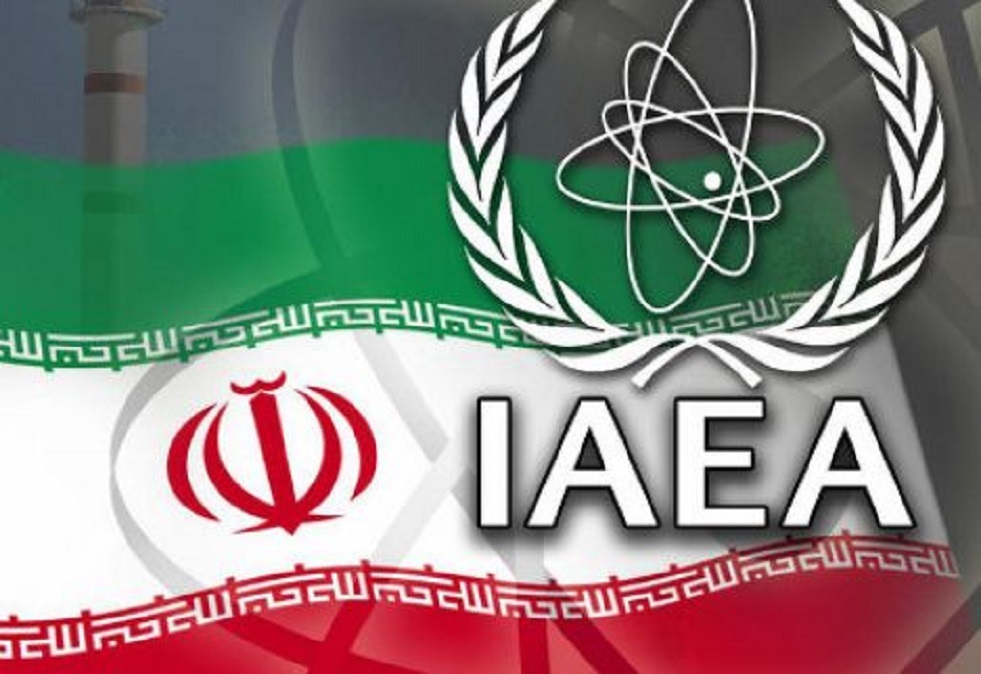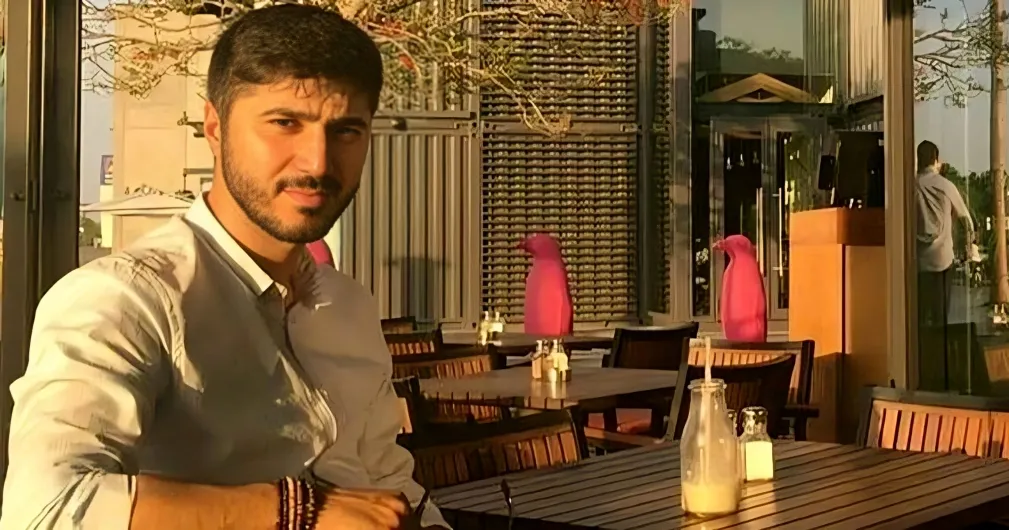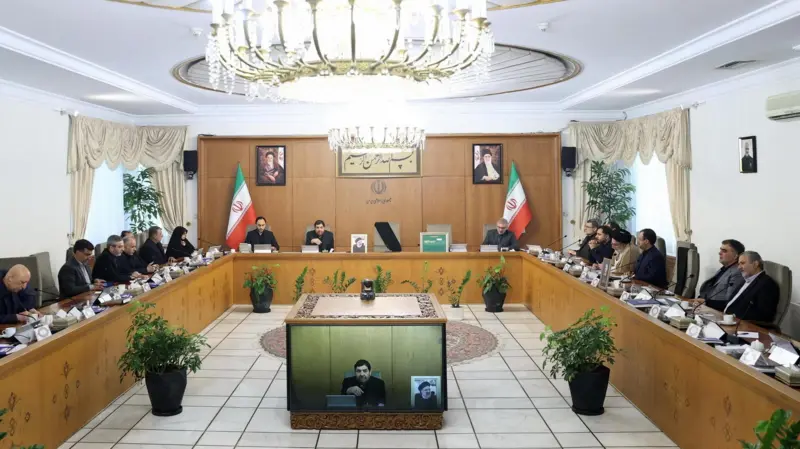
The Necessity of Restraint in Diplomacy
In an article penned by Mahmoud Sadri for Arman Daily, recent discussions regarding the geopolitical dynamics of the Gulf were highlighted, emphasizing that each country is driven by its own interests. The editorial emphasizes that Russia and China’s close relations with Iran are fundamentally based on shared interests. Their occasional support for the Gulf states concerning disputed islands also aligns with their strategic interests.
The editorial notes that while some may criticize these alliances, severing ties with China and Russia is not a feasible option for Iran. Iran’s economic survival is currently heavily reliant on China, the only country purchasing Iranian oil on a large scale. This relationship, while rooted in Chinese interests, is crucial for Iran’s economic breathing space. Similarly, Russia’s security and military cooperation with Iran, although interest-driven, remains vital. However, when their interests dictate, these nations do not hesitate to oppose Iran’s positions.
The editorial discusses that the real constraint on Iran is not external forces, but rather its own policies, which have boxed the nation into a specific framework. The strategic errors of Iran’s foreign policy have been exploited by China and Russia, not out of malice, but due to national considerations and patriotism, which is considered commendable. Every regime that prioritizes its national interests is acting admirably, even if those actions are viewed negatively by other nations. Conversely, authorities who neglect their country’s interests are culpable for their nation’s setbacks.
The writer further notes that Saudi Arabia and the UAE, despite possessing fewer resources than Iran, have maneuvered themselves into favorable international positions. The United States, for instance, is expanding cooperation Saudi Arabia, recognizing the country’s success in balancing global powers. While Iran may view these policies as misguided, they align perfectly with the national interests of Saudi Arabia and the UAE.
The editorial highlights that proposals urging Iran to take a hard stance on issues like Taiwan are misguided and emotionally driven. Such actions could provoke retaliation from China in international forums like the Security Council. Unlike Saudi Arabia, which has the leverage to adopt such stances and gain privileges, Iran, due to its isolated position, lacks this capability. The solution suggested involves Iran moving away from its anti-Western stance and seeking balanced relations with the global community.
The editorial discusses how China has managed to secure concessions from both the Arabs and the West, partly due to the underwhelming realization of its plans with Iran. This situation has led to increased Arab engagement with China and Russia and the United States offering concessions, highlighting Iran’s diplomatic challenges.
The current anti-Western strategy, the editorial argues, has led to sanctions that limit Iran’s ability to wield influence in its relations with China. Consequently, Iran is forced to accommodate Chinese and Russian policies, lacking the necessary leverage to exert pressure. If China and Russia align with the West against Iran in international forums, or if China ceases to buy Iranian oil, Iran would face severe financial and political setbacks. The editorial concludes that the Iranian republic’s existing policies have significantly restricted its international support and resources, underscoring the urgent need for a strategic pivot in its foreign policy.
Presidential Candidates and the United States
In an article penned by Mohammed-Sadegh Janan Saffat for Jahan-e Sanat newspaper, the focus is on the upcoming election in Iran and the imperative for candidates to address citizens’ demands clearly and honestly. With only six candidates remaining out of the initial 80, it is emphasized that clichéd speeches and slogans will not suffice. Instead, candidates must openly acknowledge the main concerns of citizens, particularly regarding decent living standards and economic stability.
The article underscores that most citizens prioritize decent living standards and economic security. Many Iranians are grappling with the fear of falling into poverty, exacerbated by rapid inflation rates. Despite Iran’s potential for providing peace and prosperity for its citizens, inefficient management has hindered progress. Therefore, the remaining candidates must address these issues directly and propose tangible solutions to alleviate poverty and economic hardship.
A significant portion of Iranians attribute the increasing poverty and destitution to US economic sanctions against Iran. Before the imposition of sanctions, Iran relied heavily on oil exports, generating substantial income. However, the embargo has led to a decline in foreign trade, inadequate investment and soaring inflation, exacerbating poverty levels. Candidates are urged to openly discuss the economic consequences of sanctions and propose viable strategies for their removal.
Given that the United States is the primary source of sanctions against Iran, citizens expect candidates to address the issue of relations with the United States directly. Many Iranians believe that the lack of engagement with the United States has contributed to their economic woes. Therefore, candidates must be transparent about their stance on this matter and openly engage with the majority opinion in Iran.
Yet, the article stresses the importance of transparency, honesty and clarity in addressing citizens’ concerns during the election campaign. Candidates must move beyond generic rhetoric and offer concrete plans to tackle poverty, economic instability, and the challenges posed by sanctions. Failure to do so risks further eroding public trust and reducing voter turnout.
How Iran’s Presidential Candidate Could Use the Power of Rhetoric?
In an editorial by Mostafa Danandeh for Asr-Iran newspaper, the focus is on the qualified candidates for the upcoming presidential election, highlighting the distinct speaking abilities of certain candidates compared to others. Among the approved candidates are Mohammad Bagher Ghalibaf, Alireza Zakani, Masoud Bishikian, Seyed Amir Hossein Ghazizadeh Hashemi, Saeed Jalili, and Mostafa Pourmohammadi.
The editorial notes that Zakani, Jalili and Ghazizadeh Hashemi, who were also present in previous elections, may alter their strategies in the final days of the campaign to support a more favorable candidate, even if reluctantly, to prevent the victory of a less desirable opponent.
Pourmohammadi, as the secretary of the “hardliner” clergy community, represents the traditional faction of fundamentalism. However, unlike some other “hardliners,” he is critical of neo-fundamentalists and may play a significant role in the election. His eloquence and familiarity with hidden power dynamics could be advantageous in debates.
Pourmohammadi’s extensive experience in various governmental positions, including the Ministry of Information, Ministry of Interior and Ministry of Justice, poses a challenge for competitors Zakani and Jalili.
Explaining the contrast between Pourmohammadi and Hemmati in terms of oratory, the editorial highlights Pourmohammadi’s perceived skillfulness. Pourmohammadi is viewed as an eloquent speaker, capable of leveraging religious rhetoric, such as Nahj al-Balagha, to appeal to religious voters and challenge the morality of opponents like Zakani and Jalili.
Furthermore, Pourmohammadi’s support in Turkish-speaking provinces could sway the election in his favor. His simple lifestyle and untarnished record may also resonate with voters tired of empty rhetoric and broken promises.
Danandeh predicts that the upcoming debates will be more engaging than previous elections due to candidates’ oratorical skills. He draws parallels to Hassan Rouhani’s victories in past elections, suggesting that a candidate’s ability to navigate debates and effectively communicate their message can greatly influence the outcome.
The Iranian Nuclear Dilemma and the European Position
In an editorial by Abdolreza Farajirad for Arman Melli newspaper, the recent resolution passed by the Board of Governors against Iran is scrutinized. Although the resolution is not headed to the Security Council, Farajirad clarifies that three European nations penned a letter to the Security Council, reiterating concerns voiced during the Board of Governors meeting.
Farajirad explains the European strategy, pointing out their apprehension regarding Iran’s enrichment levels. The letter to the Security Council serves as a signal of their concerns, indicating readiness to activate the snapback mechanism if Iran fails to cooperate satisfactorily with the International Atomic Energy Agency (IAEA).
The editorial discusses the timing of European actions, suggesting that major steps might be deferred until after the US elections. While the United States, having withdrawn from the JCPOA, cannot initiate the snapback mechanism, European JCPOA members possess this capability. Farajirad anticipates talks between Iran and the IAEA in the coming weeks and months to assess cooperation levels.
Farajirad delves into the mechanics of the snapback mechanism, highlighting the lack of veto power for Security Council members if invoked by a JCPOA participant. This underscores Europe’s intention to pressure Iran into compliance rather than immediately escalate the situation to the Security Council.
While Europe refrained from immediately escalating the matter to the Security Council, the letter serves as a warning to Iran. It implies that failure to address concerns, such as unresolved safeguard issues and access to nuclear sites, could lead to the activation of the snapback mechanism. However, Farajirad cautions against expecting immediate action, citing considerations such as the imminent Iranian and US presidential elections.
Farajirad notes the complexity of European-Iranian relations amidst these developments. Despite Europe’s expressed concerns, there is a recognition of the need for diplomatic engagement and negotiation. This nuanced approach reflects Europe’s desire to maintain the JCPOA framework while addressing Iran’s nuclear activities.
The editorial explores potential scenarios following the recent European moves. While there is speculation about the activation of the snapback mechanism, Farajirad emphasizes the significance of ongoing dialogue between Iran and the IAEA. Such discussions could pave the way for resolving outstanding issues and mitigating tensions.
Additionally, Farajirad discusses Iran’s response strategy. With upcoming elections on the horizon, Iran’s leadership faces domestic and international pressures. How Iran navigates these challenges will influence future developments in the nuclear arena.
Farajirad suggests that Europe’s current stance revolves around applying pressure and issuing veiled threats to ascertain Iran’s response. The delay in decisive action indicates a strategic approach, waiting to gauge the outcomes of significant political events before proceeding with the potential activation of the snapback mechanism.

Iranian Lawmakers React to IAEA Decision Against Iran

According to Tasnim news agency’s parliamentary reporter Mojtaba Bakshipour, during today’s legislative session, 220 members of the Islamic Consultative Assembly responded to the recent resolution by the International Atomic Energy Agency (IAEA) and the European troika against Iran. Bakshipour, a member of the Presidium of the Islamic Council, presented the statement issued by the Board of Governors.
The statement condemns the resolution proposed by three European nations – the UK, Germany, and France – against Iran’s peaceful nuclear program, which was recently endorsed by the IAEA Board of Governors. The statement accuses these countries of supporting the “child-killing Zionist regime,” referring to Israel, which stands accused of genocide against Gaza’s defenseless population. The statement highlights Israel’s nuclear threats against Gaza residents and its role in instigating global unrest.
The lawmakers assert that the resolution aims to divert attention from Israel’s crimes. They argue that Iran’s postponement of some obligations under the JCPOA was prompted by the unlawful US withdrawal from the agreement and the failure of Germany, the UK and France to fulfill their commitments.
The statement reaffirms Iran’s right, as an independent nation, to develop peaceful nuclear technology under the Non-Proliferation Treaty (NPT). It criticizes the resolution for undermining Iran’s legitimate rights and setting a troubling precedent for politically motivated actions by international bodies like the IAEA.
Iranian Media Activist Arrested in France

Iranian media has reported the arrest of Bashir Biazar, a former managing director of the Islamic Republic of Iran Broadcasting (IRIB) who is currently in charge of the IRIB music division, and described him as a “media activist.” His detention is allegedly linked to his “anti-Zionist activities” on social media. While some opposition figures label him as a “security agent” for Iran in France, the grounds for his arrest initially lacked clarification. However, government sources attribute it to his vocal opposition against the Zionist regime, particularly concerning Palestine. Media outlets affiliated with the Iranian government portray his arrest as emblematic of Western double standards in defending human rights, asserting that his activism led to detainment. Despite this, support for his release has emerged from within Iran, with calls for his swift release framed as another human rights violation by France. Diplomatic efforts have been initiated by Iranian officials to secure legal and consular assistance for Biazar. Conversely, critics view him as a collaborator with Tehran’s security apparatus, accusing him of promoting anti-Semitic rhetoric. Social media discourse varies, with some attributing his detention to actions of Iranian political activists abroad, while others perceive him as complicit in government suppression tactics, citing derogatory remarks he made about protesters. Biazar, approximately 40 years old, holds degrees in political science and international relations, as well as a master’s degree in filmmaking. He has resided in France since 2022 with his family, having previously lived in London, where he was involved in student organizations aligned with various political factions within Iran.
Government Officials Rally Support for Minister of Guidance

A letter, purportedly signed by a group of ministers, vice presidents and members of Iran’s government delegation, has surfaced in support of Minister of Culture and Islamic Guidance Mohammad Mehdi Esmaili. Published in Iranian media, including the Rajanews website, the letter urges the Guardian Council to confirm Esmaili’s eligibility. The unusual move of several government officials advocating for another minister’s qualification confirmation has drawn attention. The letter, described as “confidential” and “faithful advice,” has been deemed a surprising departure from convention. The Rajanews website speculated that the leak was aimed at influencing the Guardian Council’s decision-making process, highlighting potential ulterior motives behind its publication. Notably, the Guardian Council has yet to release the names of approved candidates for the upcoming presidential election. The letter’s signatories expressed confidence in Esmaili’s ability to lead effectively if elected. Among those endorsing Esmaili are Minister of Energy Ali Akbar Mehrabian and acting Minister of Foreign Affairs Ali Bagheri Kani. The publication of the letter has raised legal concerns, with reports indicating that judicial authorities will investigate its origin. The incident comes amid heightened scrutiny over election-related activities.
Supreme Court Upholds Death Sentence of Sunni Cleric Mohammad Khizranjad

The Supreme Court of Iran has upheld the death sentence of Mohammad Khizranjad, a Sunni cleric arrested during protests two years ago in Iran. Reports from the Harana website, the Human Rights Activists Group news agency, and the Kordpa news site confirm this decision made on Thursday, June 17.
Ali Razini, the judge of the Supreme Court of the Islamic Republic of Iran, affirmed the initial death sentence issued against Khizranjad. The cleric was arrested in Bukan, West Azerbaijan Province, along with his child, shortly after delivering a speech at the funeral of Asad Rahimi, a protester killed in the Bukan events.
Khizranjad was subsequently detained and is currently held in Urmia prison. Last fall, the Urmia Revolutionary Court sentenced him to death, along with an additional 16 years of imprisonment, on charges including “corruption in the land,” “action against national security,” and “propaganda against the regime.”
Relatives of Khizranjad have denounced the “forced confessions” extracted from him under severe torture. They argue that the judgment issued by the Urmia court was based on these coerced confessions and that his trial process was not fair. Khizranjad defended himself in court without legal representation, as he did not have a lawyer throughout the proceedings, which consisted of only four brief sessions.
The Kurdistan Human Rights Network reported that Khizranjad, in his defense, questioned the competence of the Revolutionary Court to handle charges against a cleric. He requested a trial in a special clerical court, but his requests were disregarded, and he was not given sufficient time to present his case in the four court sessions.
Furthermore, over 240 teachers have demanded the cancellation of Khizranjad’s death sentence and his release. Additionally, hundreds of Iranian Sunni clerics wrote to Chief Justice Mohseni Ejei, urging Khizranjad’s release and highlighting the lack of justice in his judicial proceedings.
Amnesty International has also raised concerns about the impending execution of Khizranjad, among other prisoners. They have cautioned against his execution, emphasizing the flaws in his trial and the risk of capital punishment based on coerced confessions.
Despite widespread calls for justice and due process, the Supreme Court’s decision to uphold Khizranjad’s death sentence underscores ongoing concerns regarding human rights and judicial impartiality in Iran.
